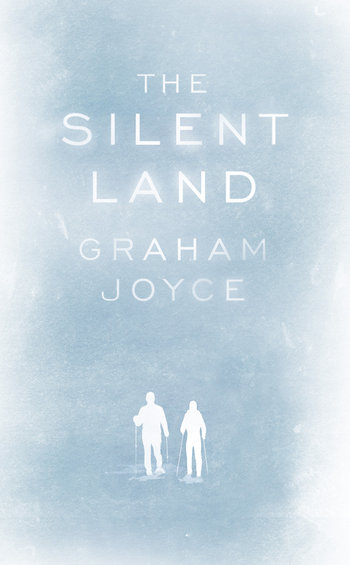Why you can trust GamesRadar+
Baby it’s cold outside…
On a slope in the French Alps, the whisper of skis on snow is “displaced by a rumble”. An English couple, Zoe and Jake, have no hope of outpacing the avalanche that’s heading their way. Instead, they take such scant cover as they can find, clutching desperately to trees as they’re engulfed. “Total silence, total darkness.”
What happens next is even more frightening. After clawing their way out of the snow, Zoe and Jake struggle back to their resort, only to find it completely deserted. Has the village been evacuated? Or has something else, something far scarier, happened? Could anyone really have survived the avalanche the duo have just endured?
Let’s get this out of the way before going any further. Yes, British author Graham Joyce’s latest novel rests upon a familiar horror premise: the idea of being caught betwixt and between in an eerie place where the everyday and the eldritch co-exist. This in turn makes The Silent Land the most delicate of literary balancing acts. For the book to work, Joyce has to bring something new to the party to act as a counterpoint, a fact you’d guess wasn’t lost on a veteran of close to 20 novels as he sat down to type.
Joyce’s necessary solution, at both an emotional and technical level, is to focus on his protagonists, a dinky (double-income-no-kids-yet) couple who find themselves in an extraordinary situation instead of enjoying a luxurious holiday as they planned. Luckily, they’re good company: Jake is a bit too full of himself but fundamentally decent; Zoe has a vulnerability borne of loss but also an inner strength; the couple bicker playfully but sharply in a way those exhausted by children can never raise the energy to manage. (Zoe to Jake when he plays a tasteless joke: “‘You know what?’ she said. ‘Even as a dead person you can be such an arsehole.’”)
As the couple’s ordeal runs to days that blur into each other, Joyce sketches out the emotional landscape of their marriage. Here are shared memories. Here’s a sudden revelation of infidelity and why, while it matters, it’s no reason to have a marriage-ending strop. Most importantly, here are the dynamics of a relationship shown in close-up.
Considering that The Silent Land is hardly a long novel, Joyce does all this without ever wasting words or lingering on detail once he’s made his point. The result is a book that’s as crisp as new snow, even to the point where you sometimes long for more detail, for Joyce to linger on a scene as a novelist working from a literary fiction tradition might.
There’s another reason the book is so compelling. If partnership, the slog and joy of marriage, is one of the book’s major themes, another is death and loss – in particular, how do we carry on when faced with these? Without giving too much of the ending away, Joyce’s answer seems to be bound up with the idea that humans have an innate ability to cling to life until there’s really no point in holding on any further.
To return to where we began, Joyce’s novel may start in a familiar territory, but it’s where it finishes and the emotions that it explores along the way that really matter. You’ll laugh, albeit nervously; you’ll cry, unless you’re completely heartless; you’ll give your nearest and dearest hugs without really being able to explain why you’re so glad to see them – really, what more do you want from a novel?
Jonathan Wright
Ian Berriman has been working for SFX – the world's leading sci-fi, fantasy and horror magazine – since March 2002. He's also a regular writer for Electronic Sound. Other publications he's contributed to include Total Film, When Saturday Comes, Retro Pop, Horrorville, and What DVD. A life-long Doctor Who fan, he's also a supporter of Hull City, and live-tweets along to BBC Four's Top Of The Pops repeats from his @TOTPFacts account.



